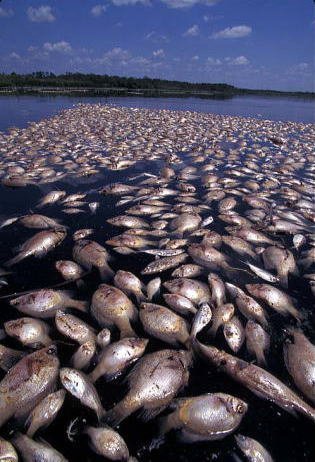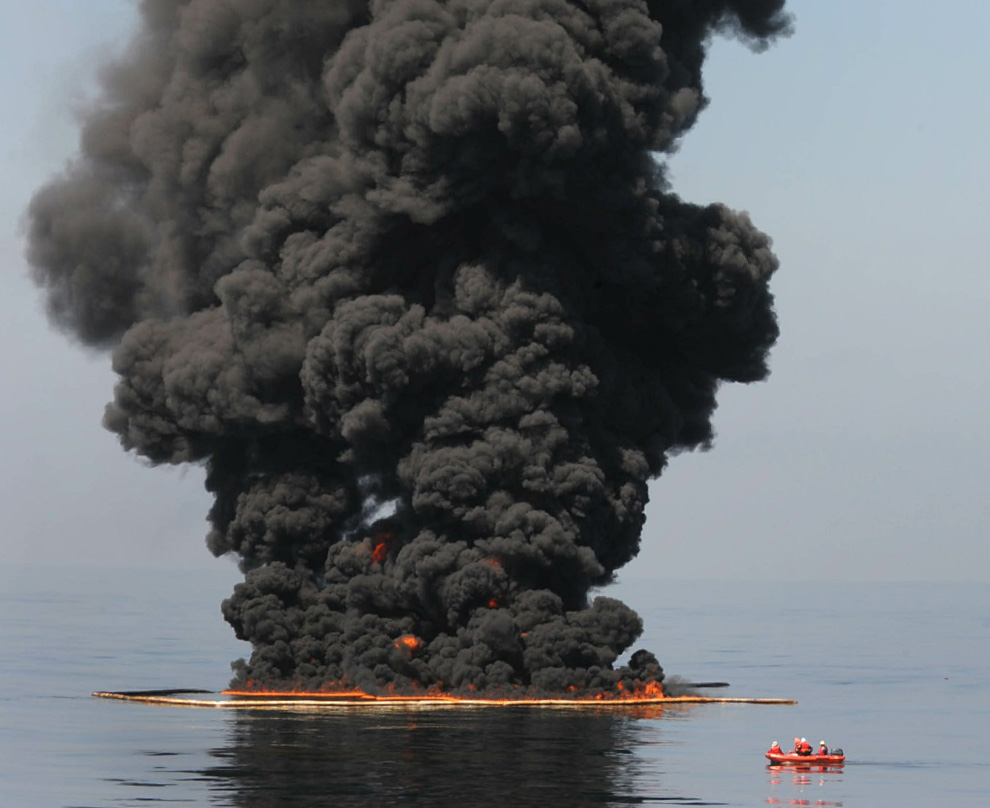Submitted by Anne Landman on
 U.S. Environmental Protection Agency Administrator Lisa Jackson questions BP's widespread application of oil dispersants in the Gulf of Mexico, as does everyone else. According to Jackson, the government is "uncharted waters" with the use of dispersants in the Gulf of Mexico. "The amount of dispersant being used at the surface is unprecedented," Jackson says. BP is also applying the chemicals in the sub-sea environment. In addition, dispersant is stopping oil from collecting on water surface, where it can be more easily controlled.
U.S. Environmental Protection Agency Administrator Lisa Jackson questions BP's widespread application of oil dispersants in the Gulf of Mexico, as does everyone else. According to Jackson, the government is "uncharted waters" with the use of dispersants in the Gulf of Mexico. "The amount of dispersant being used at the surface is unprecedented," Jackson says. BP is also applying the chemicals in the sub-sea environment. In addition, dispersant is stopping oil from collecting on water surface, where it can be more easily controlled.
BP's Web site gives the impression that dispersants "clean and control" ocean oil spills by putting the oil in a state where "it becomes a feast for the naturally-occurring microbes that inhabit the ocean." But dispersants do not clean the water, nor do they remove oil at all, but rather re-arrange where it exists, and change where it goes.
A 3-D Environmental Problem
In the absence of significant scientific data describing their environmental effects, EPA has scrambled to perform short-term testing on dispersants. The agency issued a relatively benign assessment of the dispersants' effects, but private-sector toxicologists, biologists and other experts are warning about the unknown consequences of applying dispersants in such quantities. Corexit, the optimistically-named dispersant most favored by BP, essentially turns a two-dimensional problem of oil floating on the ocean's surface into a three-dimensional problem where oil gets mixed with dispersants and, through the action of microbes, changes into yet other chemicals that "we know absolutely nothing about," says marine biologist and toxicologist Chris Pincetich, Ph.D., who specializes in pesticides. EPA's short-term testing on dispersants may have showed little effect on fish, but chemicals that kill no fish within a deadline of 96 hours (EPA's deadline) can cause a 97% kill rate shortly beyond that deadline. Thus, short terms tests mean little, says Dr. Pincetich, who concludes that BP and, through its complicity, the government are essentially conducting a huge, environmental experiment on the Gulf "the likes of which we have never seen." Another area for which we lack data is the impact on air quality of of burning large quantities of oil and dispersant/oil mixture, as is also ongoing in the Gulf.
Swimming in the Dark: Little Data Available on Dispersants
 On May 8, three Louisiana government agencies dealing with health, environment and wildlife jointly wrote a letter (pdf) to BP CEO Tony Hayward seeking information about the dispersants BP was using: "We have serious concerns about the lack of information related to the use of dispersants in fighting the oil spill at and below the surface of the Gulf of Mexico," the officials wrote, "and what, if any, impact the dispersants could have on our people, water and air quality, as well as the wildlife, fisheries and vegetation of Louisiana's coastline and wetlands." They sought data from BP on the short and long-term effects of the use of the dispersants on water, seafood stocks, humans and wildlife over time, and information on what resources BP had to restore wetlands and fisheries harmed by dispersants.
On May 8, three Louisiana government agencies dealing with health, environment and wildlife jointly wrote a letter (pdf) to BP CEO Tony Hayward seeking information about the dispersants BP was using: "We have serious concerns about the lack of information related to the use of dispersants in fighting the oil spill at and below the surface of the Gulf of Mexico," the officials wrote, "and what, if any, impact the dispersants could have on our people, water and air quality, as well as the wildlife, fisheries and vegetation of Louisiana's coastline and wetlands." They sought data from BP on the short and long-term effects of the use of the dispersants on water, seafood stocks, humans and wildlife over time, and information on what resources BP had to restore wetlands and fisheries harmed by dispersants.
The government and BP both lack crucial scientific information about dispersants. Nevertheless, BP continues to apply them in massive quantities on the Gulf, and the government seems powerless to stop the company from using them. On May 23, EPA and the Coast Guard ordered BP to reduce its use of dispersant by 75 percent from its peak usage. Over the next month, though, BP reduced its usage only 68 percent, so application is still ongoing in one of the biggest environmental experiments ever performed.
You can see photos of the real impact of BP's oil blowout on the Gulf and its wildlife here.

Comments
James Eduard @ Phone replied on Permalink
Environmental & Health Effects of Oil Dispersants
rakun replied on Permalink
government need to take this
bonus senza deposito replied on Permalink
How the spill change size and move on...
George Century replied on Permalink
Making it up as they go along?
rony roy replied on Permalink
Our life is in danger
Anonymous replied on Permalink
we are all getting sick here
Anonymous replied on Permalink
Human life
Pages